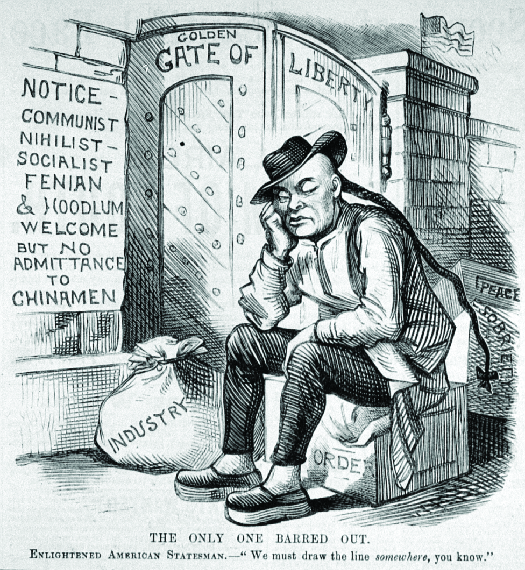| << Chapter < Page | Chapter >> Page > |
Because Asian Americans are often stereotypically regarded as “the model minority” (because it is assumed they are generally financially successful and do well academically), it is easy to forget that they have also often been discriminated against and denied their civil rights. Indeed, in the nineteenth century, Asians were among the most despised of all immigrant groups and were often subjected to the same laws enforcing segregation and forbidding interracial marriage as were African Americans and American Indians.
The Chinese were the first large group of Asians to immigrate to the United States. They arrived in large numbers in the mid-nineteenth century to work in the mining industry and on the Central Pacific Railroad. Others worked as servants or cooks or operated laundries. Their willingness to work for less money than whites led white workers in California to call for a ban on Chinese immigration. In 1882, Congress passed the
Chinese Exclusion Act , which prevented Chinese from immigrating to the United States for ten years and prevented Chinese already in the country from becoming citizens (
[link] ). In 1892, the
Geary Act extended the ban on Chinese immigration for another ten years. In 1913, California passed a law preventing all Asians, not just the Chinese, from owning land. With the passage of the
Immigration Act of 1924, all Asians, with the exception of Filipinos, were prevented from immigrating to the United States or becoming naturalized citizens. Laws in several states barred marriage between Chinese and white Americans, and some cities with large Asian populations required Asian children to attend segregated schools.

During World War II, citizens of Japanese descent living on the West Coast, whether naturalized immigrants or Japanese Americans born in the United States, were subjected to the indignity of being removed from their communities and interned under
Executive Order 9066 (
[link] ). The reason was fear that they might prove disloyal to the United States and give assistance to Japan. Although Italians and Germans suspected of disloyalty were also interned by the U.S. government, only the Japanese were imprisoned solely on the basis of their ethnicity. None of the more than 110,000 Japanese and Japanese Americans internees was ever found to have committed a disloyal act against the United States, and many young Japanese American men served in the U.S. army during the war.

Notification Switch
Would you like to follow the 'American government' conversation and receive update notifications?